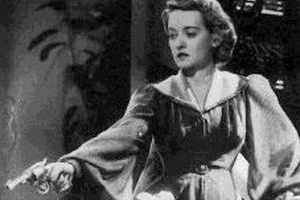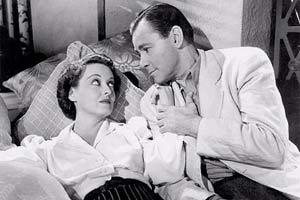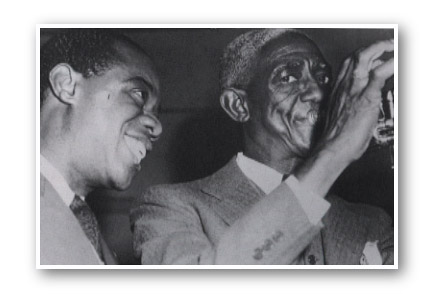Paul Moravec and I spent much of the past month slaving away at The Letter, our operatic version of Somerset Maugham’s play. He’s currently in Princeton, I in New York, so we’ve been collaborating via phone and e-mail, a process made infinitely easier by the fact that Paul writes his music on a computer, using a program called Sibelius. Every day or two he e-mails me an updated Sibelius file containing the latest revised version of the scene on which he’s working. This allows me to read through the piano score on the screen of my MacBook while simultaneously listening to a synthesized playback. I go over the score measure by measure, edit the text as needed, and send my edited version back to him, along with any musical suggestions that may have occurred to me.
Most of my suggestions have to do with matters of accentuation and timing. The first is a purely technical matter: on which syllables of the text should the musical stress fall in a given phrase? This is especially important since The Letter will be sung in English. Ideally, we’d like for every word of the text to be immediately intelligible to the members of the audience, so that they won’t have to look away from the stage to read the supertitles. One way to help bring this about is to make the accentuation of each phrase as natural-sounding as possible.
This is rarely a problem for Paul–he was an Episcopal chorister as a boy and has been writing vocal music for most of his life–but it always helps to have another pair of ears checking you out. Sometimes my comments are quite detailed: “‘Really, Leslie’ is not a question but a sarcastic statement. (Imagine Joyce shaking his head contemptuously as he says it.) It needs a strong emphasis on the first syllable of ‘Real-ly,’ and the pitches should go straight down from there, not back up.”
As for timing, I’ve spent two or three nights each week sitting in an aisle seat watching plays for the past five years, which has given me a pretty reliable sense of how long it takes an actor to move from point A to point D while hanging up his coat on the way. Paul doesn’t have that kind of nuts-and-bolts experience, so he trusts me when I tell him that he hasn’t composed enough music to cover a particular piece of stage action.
 We spent a fair amount of time, for example, tinkering with the timing of the climactic moment in Scene 4 when Leslie Crosbie (the character played by Bette Davis in the 1940 film version of The Letter) shoots Geoff Hammond, her faithless lover.
We spent a fair amount of time, for example, tinkering with the timing of the climactic moment in Scene 4 when Leslie Crosbie (the character played by Bette Davis in the 1940 film version of The Letter) shoots Geoff Hammond, her faithless lover.
Here’s how the scene in question reads in my version:
HAMMOND starts to leave.
LESLIE If you leave me now, I’ll kill myself.
She crosses to the sideboard, pulls open a drawer, and takes out a revolver. HAMMOND opens the front door.
HAMMOND (not looking back) Then kill yourself and be damned.
Without warning, LESLIE shoots him twice.
Leslie, Leslie, what have you done?
He staggers and falls onto the veranda. She runs to the body and fires four more times, then pulls the trigger of the now-empty gun repeatedly. It falls from her hand.
On paper that looks simple enough, and it wouldn’t take an experienced director long to stage it–but every move in an opera is accompanied by music, which means that Paul has to stage the scene in his head while writing the music in order to get the timing right. This led to a whole flurry of e-mails from me, most of which read more or less like this: “Measure 390: Give Geoff a little more time to stagger and collapse here–I’d stretch the measure, change that eighth-note triplet to a quarter-note triplet, and maybe add a couple more counts to measure 391 as well.”
My impression is that most librettists don’t get so closely involved in the compositional process, but then most librettists aren’t trained musicians, meaning that they can’t read a score and comment on it other than in the most general terms. I am, can, and do. By the same token, Paul feels equally free to alter my text in the heat of composition, usually by tightening it up. As soon as you start setting a piece of dramatic writing to music, you realize that certain words and phrases are no longer necessary–the music makes them superfluous–and so you cut or shorten them as needed.
On occasion, though, I also have to write extra “dialogue” for Paul when he feels that a particular moment in the opera requires a bit more music than I’ve allowed for in the libretto. Usually he simply goes ahead and writes the music and I fit words to it after the fact, but every once in a while he calls me up and asks for an extra line or two, as he did a few days ago.
 “Look at measures 267 and 268 of Scene 2,” he said. “There’s no vocal line yet, but I want Leslie to sing something there over the orchestra, right after her husband sings I’m not clever,/I’m not handsome,/Whatever did you see in me? Can you give me a couple of lines?”
“Look at measures 267 and 268 of Scene 2,” he said. “There’s no vocal line yet, but I want Leslie to sing something there over the orchestra, right after her husband sings I’m not clever,/I’m not handsome,/Whatever did you see in me? Can you give me a couple of lines?”
Leslie’s next line was My dearest, my darling,/I have always loved you, so I scratched my head for a moment and thought about the situation.
“I’ve got it,” I said. “Have her sing How can you ask this?/How can you wonder?”
“Ooooh, yes,” Paul said. “Just right. She’s such a lying bitch. Let me write that down.” And that was that.
So why are our knickers in such a twist over an opera that Santa Fe Opera won’t be premiering until the summer of 2009? Because we were told a couple of weeks ago that the company plans to workshop The Letter (in theater, “workshop” is a verb) in March. This is a big deal–it will be the first time that either of us has heard any of the score performed by real live human beings other than ourselves–but it also means that in order for the singers to have time to learn their parts, we have to get the music in their hands as soon as possible. Brad Woolbright, Santa Fe Opera’s artistic administrator, gave us a no-fooling deadline of February 4 (i.e., today) to send in the sections of the score that will be rehearsed at the workshop. At that point we’d already finished Scenes 1, 2, 3, 5, and 6 and were working on Scene 4, so we shifted into high gear and got cracking.
 Needless to say, that wasn’t the only thing I had to do in January. If you’re a regular reader of this blog, you’ll recall that I spent the week of January 20 up in Connecticut writing the ninth and tenth chapters of Rhythm Man: A Life of Louis Armstrong, and I’ve also been seeing shows and cranking out my regular pieces for The Wall Street Journal and Commentary. In between these varied and variously pressing activities, I switched hats and worked on The Letter as often as possible, and from time to time I also ate and slept.
Needless to say, that wasn’t the only thing I had to do in January. If you’re a regular reader of this blog, you’ll recall that I spent the week of January 20 up in Connecticut writing the ninth and tenth chapters of Rhythm Man: A Life of Louis Armstrong, and I’ve also been seeing shows and cranking out my regular pieces for The Wall Street Journal and Commentary. In between these varied and variously pressing activities, I switched hats and worked on The Letter as often as possible, and from time to time I also ate and slept.
By month’s end I was starting to feel twitchy. On Saturday I took Lee Ann Westover of the Lascivious Biddies to an off-Broadway matinee, and she told me that I looked tired.
“You better believe I’m tired,” I replied. “I keep working until two and waking up at seven-thirty. I can’t shut my mind off. I’ll be soooo glad when I get this damn book in the can so that I can concentrate on the opera.”
“Don’t try to kid me,” she said. “You like being stressed out. You eat it up. You’ll probably start writing another book the day after you finish this one.”
I laughed. “Well, maybe not that soon,” I said. “I think Mrs. T might like it if I took a week off. Or maybe even two.”
